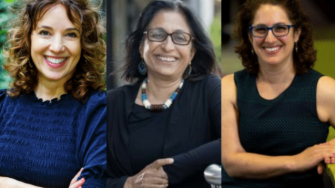Five women pioneering A.I. in Australia
AI has become increasingly common in our modern lives, and our dependence on it will continue to soar in coming years. But despite its convenience, we know there are numerous unanswered questions and adverse impacts on women, with those at the fore of the industry mostly men.
